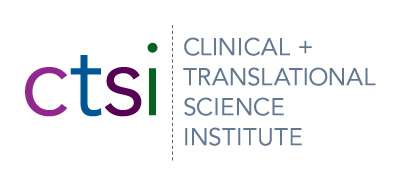ICRE to Drive New Initiatives Included in CTSI Refunding
In July 2016, the Clinical and Translational Science Institute (CTSI) at the University of Pittsburgh received a five-year, $62.3 million award from the National Institutes of Health (NIH) that will enable it to continue to speed up the translation of the important discoveries made by Pitt’s researchers.
This renewal of funding comes ten years after Pitt was one of the first 12 recipients of a Clinical and Translational Science Award from the NIH. Since 2006, Pitt’s CTSI has received more than $221 million in funding, and offered 19 academic (certificate, masters, doctoral) and career development programs through the Institute for Clinical Research Education (ICRE), which have trained over 850 graduate and medical students, residents, fellows, and faculty.
Among several CTSI-wide initiatives are several of particular relevance to the ICRE, the home of the CTSI’s Research, Education, Training, and Career Development Core as well as the Clinical and Translational Science KL2 and TL1 training programs for faculty, postdoctoral fellows, and predoctoral students.
One of these initiatives regards multidisciplinary team science, which is a basic tenet of all of our training programs and a requirement for all CTSI pilot project opportunities. In the coming months, a Team Science Working Group, led by Director Wishwa Kapoor and Associate Director Dr. Yael Schenker, will develop a Team Science Fundamentals course that will include an innovative simulation component, which is being designed and developed in partnership with WISER. This course will be multi-tiered, so that it will have particular relevance for each of the career stages (T1 - T4), and will be a required course for all TL1 and KL2 recipients (tentatively beginning in 2018).
The Team Science Working Group also recently organized a Symposium, held on March 17, 2017, which featured two thought-leaders in team science, Anita Williams Woolley, PhD, and Eduardo Salas, PhD. This was a truly unique event, which also featured a panel of previous and current KL2 scholars and TL1 fellows discussing their experiences in team science. The presentations by Drs. Woolley and Salas were recorded and will be made available on the ICRE web site—as well as potentially being disseminated to other CTSA programs around the country.
Other ICRE-related initiatives include:
- Workforce Development: We plan to enhance and expand our diverse, team-oriented, translational science workforce by providing trainees with the specialized skills, knowledge, and core competencies required to advance translation of their discoveries through innovative education methods, experiential training, and continuous learning opportunities.
- Entrepreneurship Training: A multi-tiered training program will be offered in design theory, entrepreneurship, and innovation.
-
New training in:
- Stakeholder Engagement
- Interdisciplinary Professional Skills
- Leadership
- Workforce Diversity: We will build on our efforts to diversify the workforce in a number of ways, including expanding the reach of our existing programs, establishing strategic collaborations, and forming special interest groups.
- Online Course Migration: Major efforts will be made to migrate our courses to an online hybrid format.
The Institute for Clinical Research Education serves as the Research Education and
Career Development
Core of the Clinical and Translational Science Institute (CTSI).

This Web site is maintained by the Center for Research on Health Care (CRHC) Data Center.
Contact the webmaster at dcweb@pitt.edu.